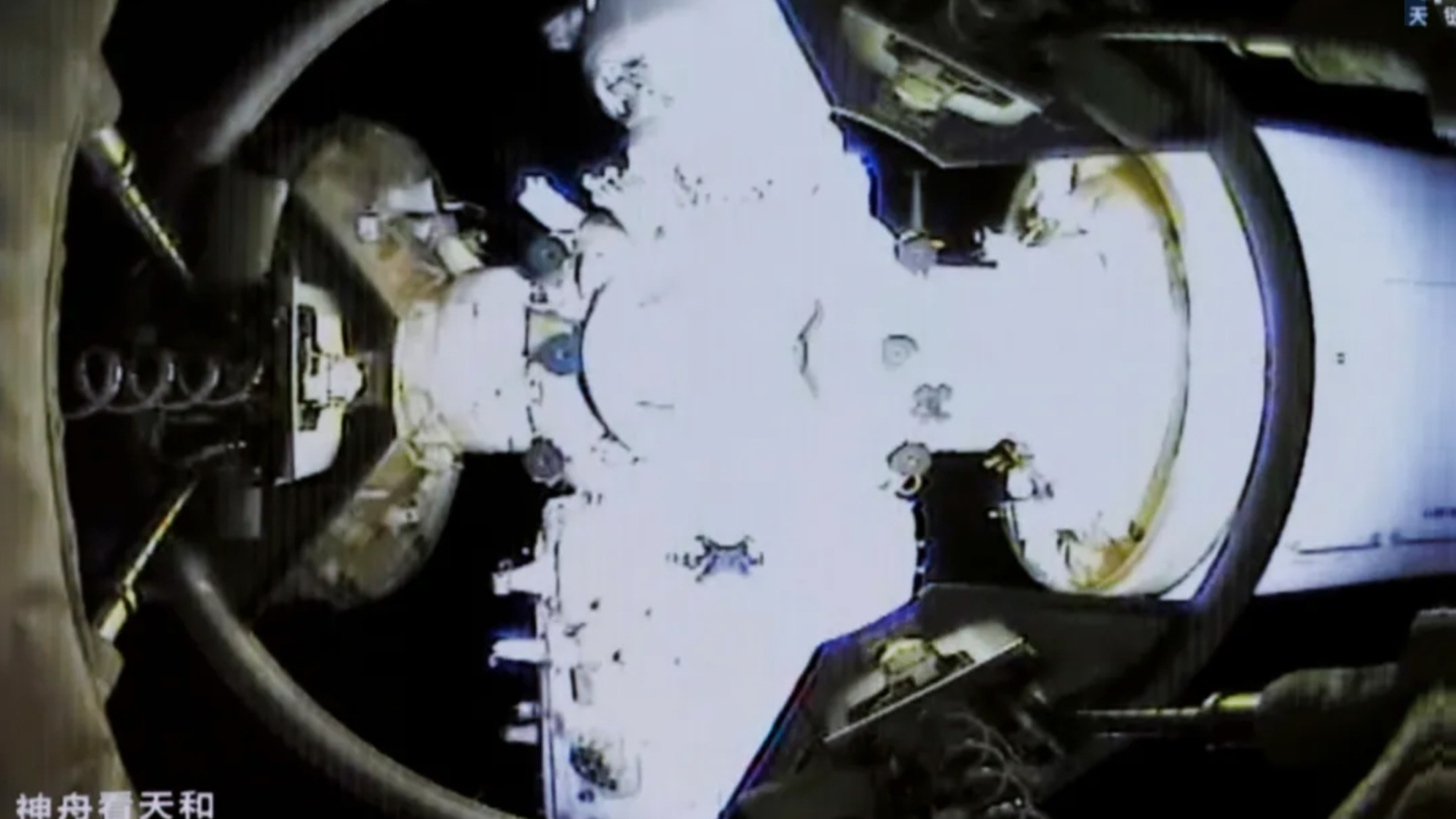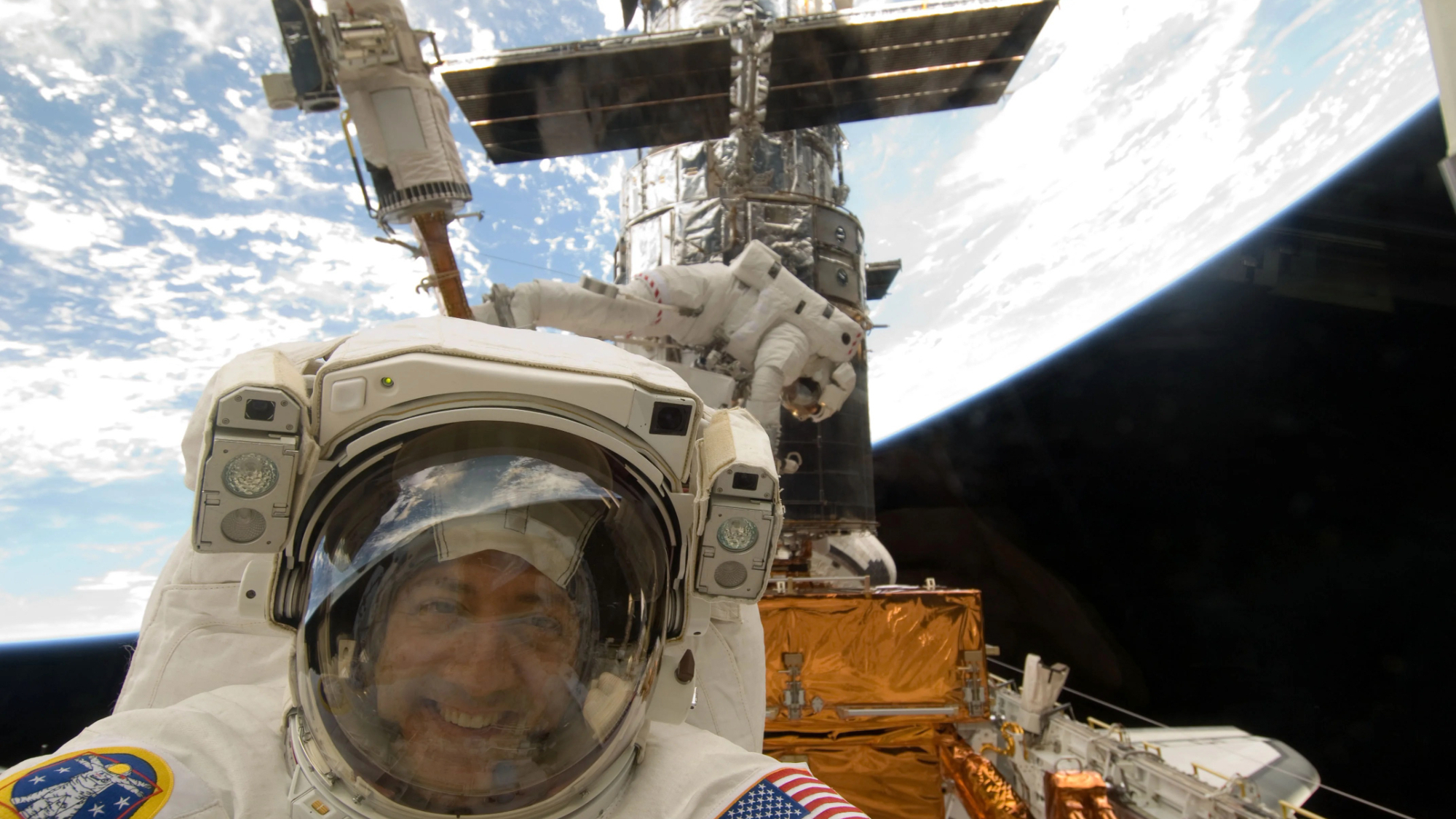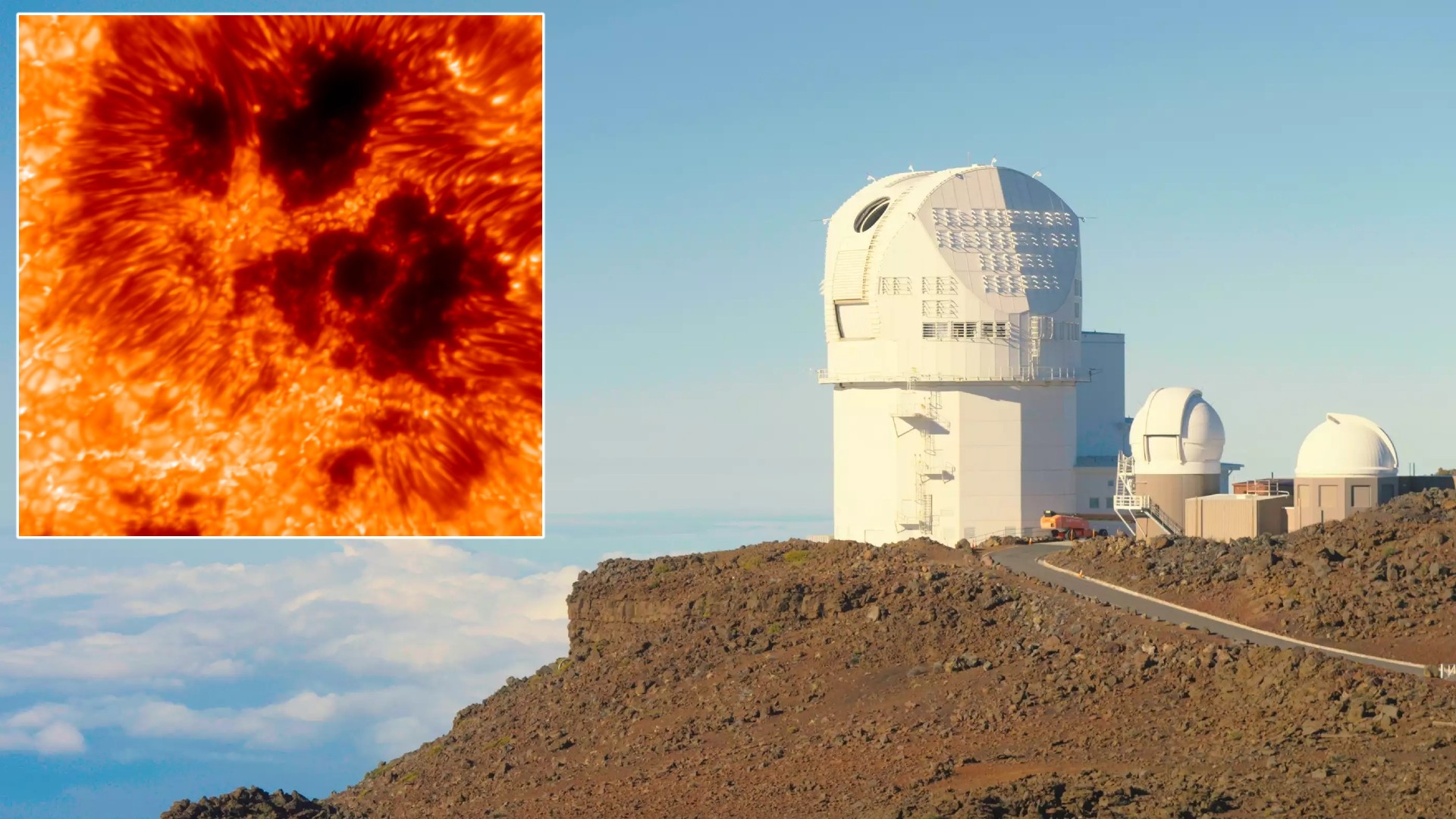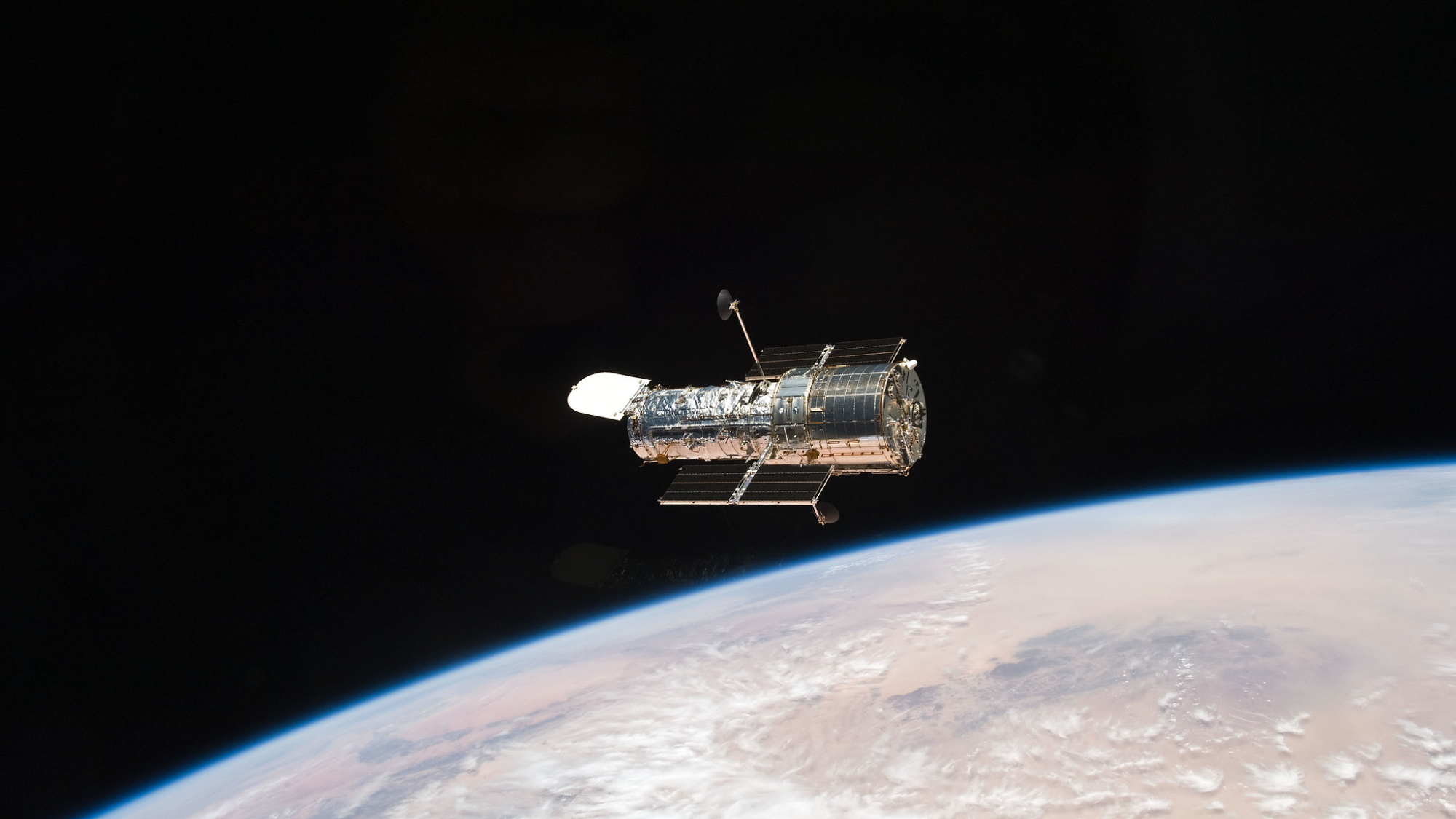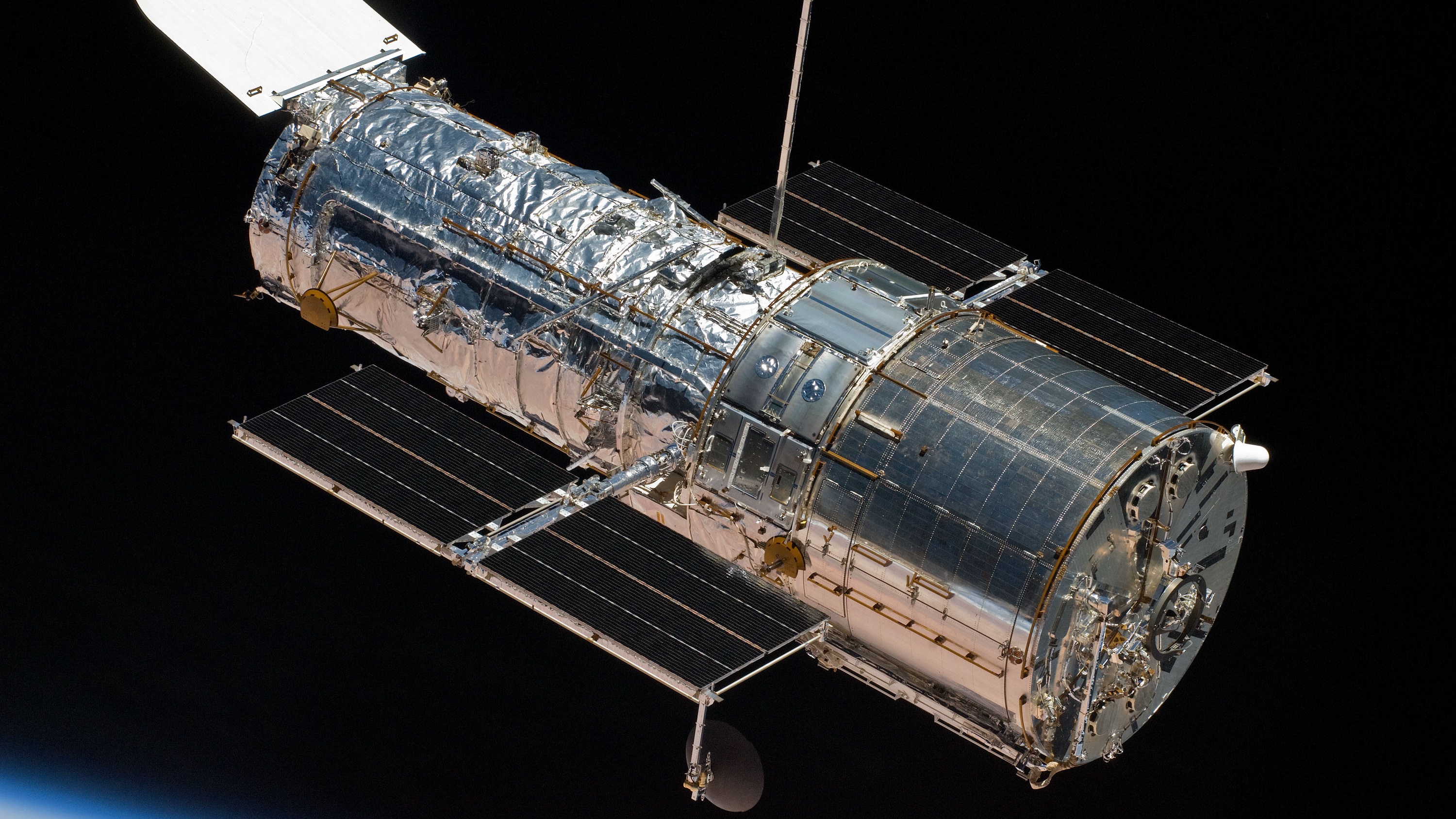Russia Is Launching a New Space Station Supply Ship Today: Watch Live
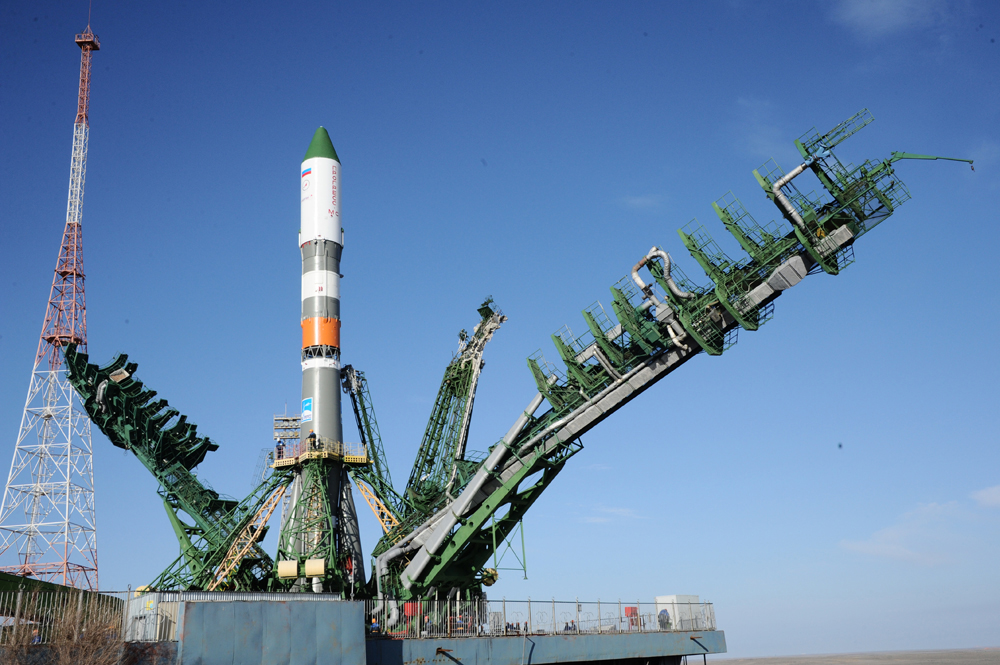
Update for 1:30 pm ET: Russia's Progress 63P cargo ship has successfully launched into orbit. Read our full story here: Russia Launches Robotic Supply Ship Toward Space Station.
Russia's space agency, Roscosmos, is counting down to the launch of a new supply ship for the International Space Station today (March 31), and you can watch the mission blast off via a live webcast.
The unmanned Progress 63P spacecraft — crammed with 3 tons (2.7 metric tons)of supplies for the station's crew — is scheduled to launch on a Soyuz rocket at 12:23 p.m. EDT (1623 GMT) from Baikonur Cosmodrome in Kazakhstan, where it will be late evening local time at liftoff. You can watch the Progress cargo ship launch live via Space.com beginning at 12 p.m. EDT (1600 GMT), courtesy of NASA TV.
Unlike most of the recent Progress delivery missions to the space station, Progress 63P will not be making a one-day trip to the orbiting lab. Instead, it will spend two days chasing the space station before arriving on Saturday (April 2) at 2 p.m. EDT (1800 GMT), according to NASA officials. [The Space Station's Robotic Cargo Ship Fleet in Pictures]
"The two-day rendezvous for Progress is deliberately planned to enable Russian flight controllers to test new software and communications equipment for the new vehicle configuration that will be standard for future Progress and piloted Soyuz spacecraft," NASA officials wrote in a statement.
Russia's Progress spacecraft are similar in design to its crewed Soyuz space capsules. Both are three-module vehicles, with a propulsion module at the aft and an orbital module at the front. Soyuz vehicles include a crew capsule at the center, while Progress vehicles have a module with propellant to fuel space station maneuvers.
It's a superbusy time for the International Space Station. Today's launch will mark the third launch to the space station in three weeks, as well as the second cargo mission to launch in nine days.
Get the Space.com Newsletter
Breaking space news, the latest updates on rocket launches, skywatching events and more!
On March 18, a Russian Soyuz spacecraft launched from Baikonur Cosmodrome to ferry American astronaut Jeff Williams and Russian cosmonauts Alexey Ovchinin and Oleg Skripochka on a one-day trip to the space station. The trio arrived at the orbiting lab about 6 hours later to join three other crewmates— NASA's Tim Kopra, Russia's Yuri Malenchenko and British astronaut Tim Peake — on board.
Then, last week, on March 22, an unmanned Orbital ATK Cygnus spacecraft launched to the space station on a delivery mission for NASA. It launched from Cape Canaveral Air Force Station in Florida and arrived on March 26.
Next week, on Friday (April 8), a commercial SpaceX Falcon 9 rocket will launch an unmanned Dragon cargo ship to the station from Cape Canaveral. That mission is currently slated to lift off at 4:43 p.m. EDT (2043 GMT) on April 8.
This story was updated at 12:13 p.m. ET to correct the docking time of Progess 63P at the International Space Station.
Email Tariq Malik at tmalik@space.com or follow him @tariqjmalik and Google+. Follow us @Spacedotcom, Facebook and Google+. Original article on Space.com.
Join our Space Forums to keep talking space on the latest missions, night sky and more! And if you have a news tip, correction or comment, let us know at: community@space.com.

Tariq is the Editor-in-Chief of Space.com and joined the team in 2001, first as an intern and staff writer, and later as an editor. He covers human spaceflight, exploration and space science, as well as skywatching and entertainment. He became Space.com's Managing Editor in 2009 and Editor-in-Chief in 2019. Before joining Space.com, Tariq was a staff reporter for The Los Angeles Times covering education and city beats in La Habra, Fullerton and Huntington Beach. In October 2022, Tariq received the Harry Kolcum Award for excellence in space reporting from the National Space Club Florida Committee. He is also an Eagle Scout (yes, he has the Space Exploration merit badge) and went to Space Camp four times as a kid and a fifth time as an adult. He has journalism degrees from the University of Southern California and New York University. You can find Tariq at Space.com and as the co-host to the This Week In Space podcast with space historian Rod Pyle on the TWiT network. To see his latest project, you can follow Tariq on Twitter @tariqjmalik.
